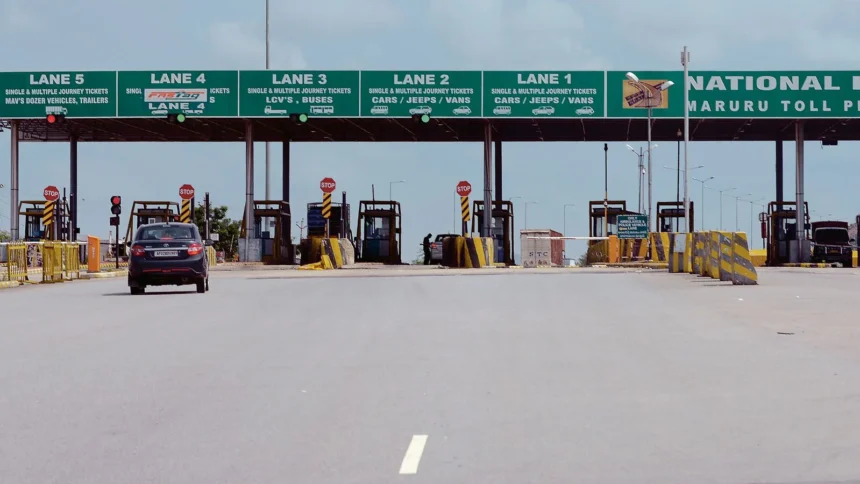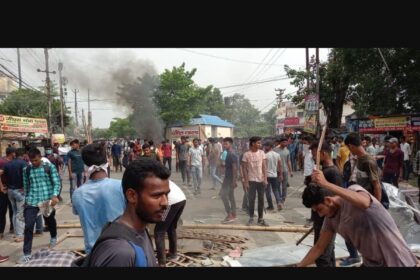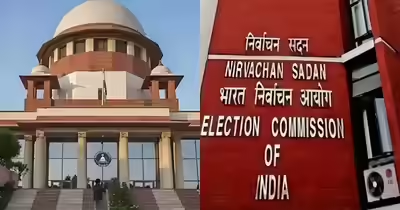Manipur Highway Row: MHA Calls It a Breakthrough, But Kuki-Zo Council Says the Road Was Never Shut
New Delhi: More than two years after Union home minister Amit Shah made his “sincerest appeal” to lift blockades on Manipur’s vital National Highway-02 (NH-02), and six months after he issued a direct order for “free movement on all roads,” the status of that highway remains mired in contested claims and political spin.
The latest flashpoint came on Thursday (September 4), when the Union Ministry of Home Affairs (MHA) announced what it called a “significant decision” by the Kuki-Zo Council (KZC) to “open” NH-02. The ministry projected it as a breakthrough in restoring normalcy.
But within hours, the KZC issued a sharp rebuttal.
“We categorically reiterate that the Imphal-Dimapur NH-02 has never been closed or blocked. The NH-02 has consistently remained open for commuters and for the transportation of essential goods. Therefore, the question of ‘reopening’ does not arise, contrary to certain media reports,” the KZC stressed in a press note.
The council added that its appeal was limited only to the highway stretch passing through Kangpokpi district and “must not be misinterpreted as an endorsement of unrestricted or free movement across buffer zones.”
A longstanding flashpoint
The highway dispute goes back to the early days of the ethnic conflict. On June 4, 2023, Amit Shah had personally appealed on social media platform ‘X’ for blockades on NH-02 to be lifted so that “food, medicines, petrol/diesel, and other necessary items can reach the people.”
When blockades persisted, Shah’s rhetoric got sharper. In a high-level security review on March 1, 2025, he ordered “free movement of people on all roads in Manipur from March 8,” warning of “strict action” against anyone obstructing traffic. On the very first day of this “free movement” order, however, clashes broke out – killing one Kuki man, injuring 48 Kuki civilians, and leaving 27 security personnel wounded.
Against this backdrop, the MHA’s latest announcement framed the KZC’s “commitment to cooperate with security forces” as a breakthrough. But the council and other Kuki organisations say this is a distortion.
‘Kukis Never Closed the Highway’
“Kuki-Zo civil society organisations or the local people have not closed the national highway and have never stopped anyone from using NH-02. It was the Meiteis who avoided the highway because they feared the anger of the Kuki-Zo community after what was done to Zo families in Imphal,” Aaron, a spokesperson of the United People’s Front (UPF) said.
The conflict displaced thousands. Many Kukis who once lived in Imphal were either forced to flee to Kangpokpi and Churachandpur or lost their lives in the violence. Meanwhile, Meitei families living in Kuki-majority areas such as Churachandpur fled to the state capital.
The Kuki National Organisation (KNO) and UPF also issued a joint clarification.
“Contrary to misinformed narratives, the Kuki-Zo community never closed or blocked the highway. The KZC’s appeal was specifically confined to the Kangpokpi stretch and aimed at encouraging cooperation with central security forces to ensure safe passage of essential goods. This gesture must not be misinterpreted as an endorsement of unrestricted movement across buffer zones,” the two outfits said in their clarification.
They added that the “responsibility for securing the highway lies with the Government of India and its deployed forces,” and that the sanctity of buffer zones between the two communities remains “paramount.”
Buffer Zones and Checkpoints
Since May 3, 2023, Manipur has been physically divided. The Imphal valley became almost exclusively Meitei territory, while Kukis consolidated in the Hills. Families uprooted from mixed localities were forced into these segregated zones.
Before Shah’s “free movement” directive, travel meant crossing multiple checkpoints; first the Army, then the BSF, Manipur Police, CRPF, and finally local posts, before entering the other community’s territory. After March 2025, most checkpoints were officially lifted, though the Army continues to guard the sensitive areas.








